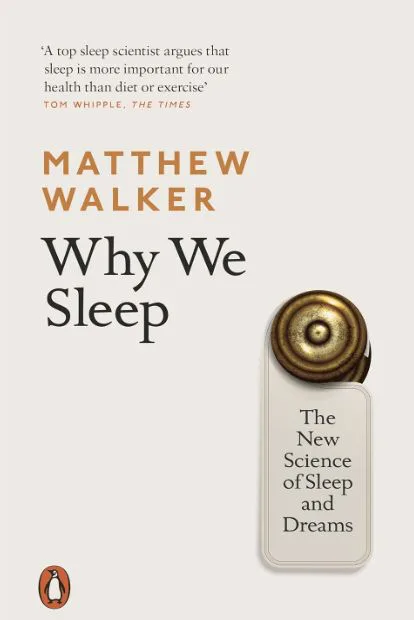
Just wrapped up the audio version of “Why We Sleep: Unlocking the Power of Sleep and Dreams” yesterday, and let me tell you, it’s pretty intriguing. Matthew Walker, the neuroscientist and sleep guru behind it, dives deep into the significance of sleep and dreaming. The book was first published in 2017.
According to him, even though sleep is “the most puzzling behavior of all human behaviors,” it’s a big player in keeping us healthy and well. It’s like this mysterious force, which resembles coma with hallucinations, that we all do but don’t quite get the full picture of why.
Importance of Sleep
Walker adds a whole new layer to the importance of sleep. He expounds on how essential sleep is for the following reasons:
- Cognitive Functions: Sufficient sleep is crucial for problem-solving, creativity, and decision-making.
- Emotional Regulation: Lack of sleep can contribute to increased emotional reactivity, mood swings, and a reduced ability to cope with stress.
- Memory Consolidation: Quality sleep, particularly during the deep stages of sleep, is crucial for forming and retaining memories.
- Overall Health: Insufficient sleep has been linked to various health issues, including obesity, diabetes, and cardiovascular disease.
- Hormone regulation: Disruptions in sleep patterns can contribute to imbalances in hormones that affect appetite and metabolism. And potentially it may cause weight gain and related health issues.
The author also talks about the after effects of less sleep, like in Alzheimer’s and cancer, and also points out when lack of sleep is just a suspect without a clear explanation. Whenever there’s a link between poor sleep and health issues, it’s a red flag worth looking into as a possible cause.
Sleep Impacts Your Ability to Learn and Remember
You know, it’s not just about feeling tired when you don’t sleep enough. Walker breaks it down and shows how it messes with your ability to learn too.
It turns out, right after you learn something new, you gotta get some good sleep. If you miss that first night of quality sleep, some of the information may be permanently lost or not effectively retained in memory.
But here’s the interesting part: if you catch that good sleep after learning, the following nights keep reinforcing what you learned while you’re snoozing away.
The initial stages of sleep, particularly deep sleep, are believed to be essential for the consolidation of memories.
Walker also stresses the point that you “can’t fully make up for missed sleep later”. There are permanent losses in terms of cognitive function, memory, and overall well-being.
He suggests that sleep is not just a passive state but an active and essential process for the proper functioning of the brain and the body as a whole.
The Therapeutic Power of Dreams
The role of dreams section offers some super interesting insight. It turns out, dreams aren’t just nighttime movies but actually have some serious therapeutic mojo. There is some serious nitty-gritty of the biochemistry behind it all. Many discovering are made, in the past, which have made headway in treating PTSD.
Walker then goes on a roll about dreams being these creative wizards. Apparently, they’re like matchmakers, pairing up random brain info to spark creativity. Or bridging random elements of knowledge or experiences together to create novel and creative connections.
And here’s the kicker – Edison was onto this. He’d wake up from naps and jot down his genius thoughts. Now, that’s some wild creativity hack, right?
Bold Claims and Personal Ironies
The author has a knack for keeping things interesting, but sometimes they go a bit overboard, messing with the book’s credibility.
For instance, he tosses in an example of someone going sleepless for days only to stumble upon a major scientific breakthrough. It’s like, “Wait, what?” This example, meant to showcase the benefits of sleep, kinda undermines the earlier claim that any lack of sleep is a massive handicap.
Walker takes a strong stance, insisting we all need a solid eight hours of sleep every single day, no exceptions. The irony hits when they openly admit to struggling with proper sleep themselves at least once a week.
It seems it’s a reminder that achieving ideal sleep can be challenging in the modern world. And individuals may need to find a balance that works for their own health and well-being within the constraints of their lives.

Takeaway
Putting aside the occasional inconsistency, the book effectively communicates the importance of sleep.
It’s a handy reference for understanding the scientific benefits of a good night’s rest and offers a helpful guide to meeting our health needs when it comes to sleep. So, despite the rollercoaster ride of tones, “Why We Sleep” does offers some interesting insights on sleep and its perks, thus, making it a worthwhile read.



